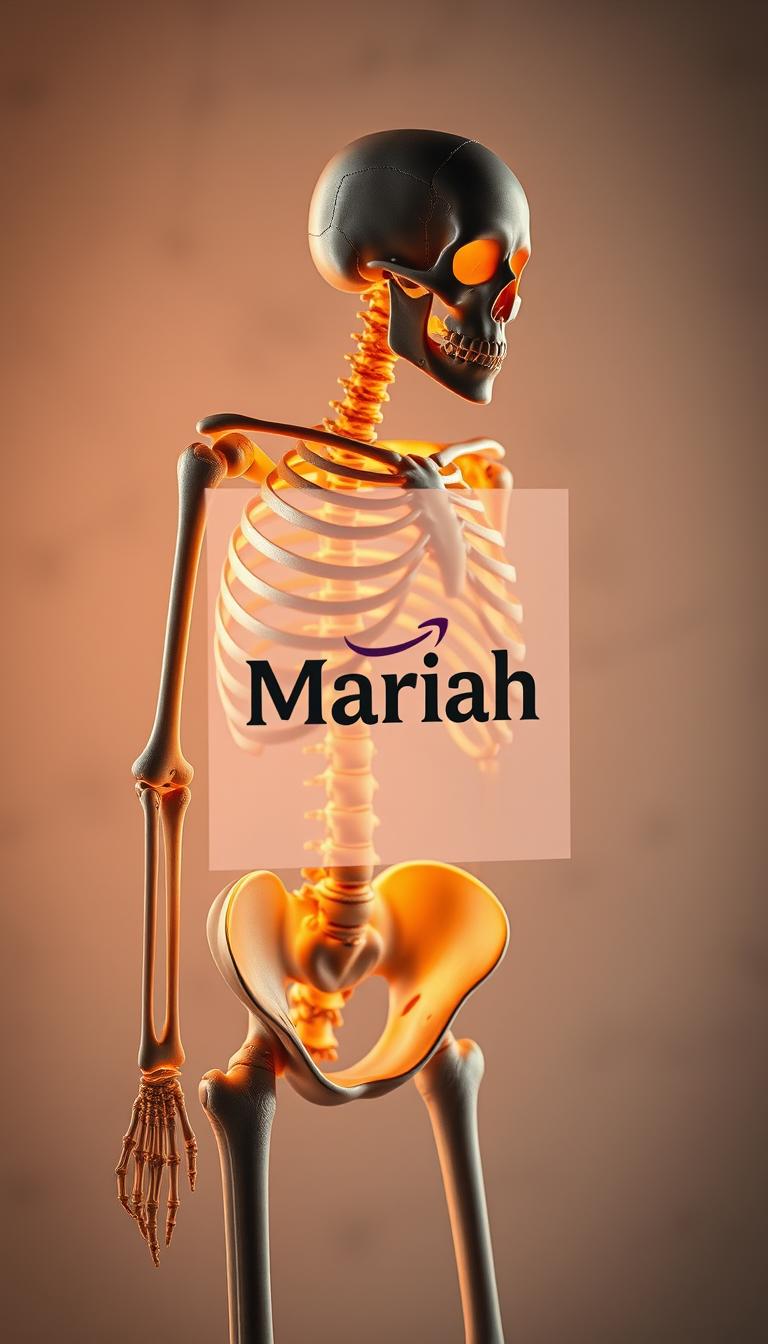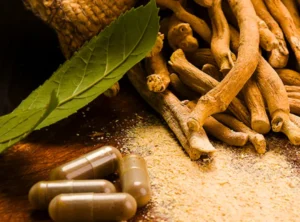
Menopause is a natural phase in a woman’s life, characterized by a decline in estrogen and progesterone production. Symptoms like hot flashes, mood swings, and vaginal dryness can significantly impact quality of life.
Many women are looking for natural alternatives to conventional hormone therapy to help alleviate these symptoms. Red clover, a plant with dark pink flowers, has been used in traditional medicine for a variety of health issues, including menopausal symptoms, due to its phytohormone content.
The symptoms that accompany this transition such as hot flashes, mood swings, vaginal dryness, and insomnia can significantly affect quality of life. For this reason, many women are looking for gentler, more natural alternatives to conventional hormone therapy. One such alternative is Red Clover (Trifolium pratense).
What is Red Clover?

- Red clover is a natural remedy used for menopause symptoms.
- It contains phytohormones that may help balance hormonal changes.
- Natural alternatives like red clover are gaining popularity among women seeking relief from menopause symptoms.
- Red clover has been traditionally used for various health conditions beyond menopause.
- Its potential benefits make it a subject of interest for those looking for gentle, non-invasive treatments.
As a plant with a rich history, red clover has been utilized for both its nutritional and medicinal properties. Red clover (Trifolium pratense) is a perennial herb native to Europe and Asia but is now cultivated in many parts of the world.
Botanical Background and History
Red clover has been cultivated since ancient times, primarily as a favorite grazing food for animals due to its high nutritional value. It belongs to the legume family and is characterized by its pink or red flowers. The plant is rich in isoflavones, which are known for their phytohormone properties, acting similarly to estrogen in the body.
Historically, red clover has been used in various cultures for its health benefits. Its use dates back to ancient civilizations, where it was valued for its medicinal properties.
Traditional Uses in Different Symptoms and Cultures
Red Clover has been used traditionally in different cultures for a variety of health problems, including respiratory problems. In some cultures, it was used to treat skin problems and inflammatory diseases. The versatility of red clover in traditional medicine highlights its importance as a natural remedy.
The traditional use of red clover for various health conditions has been documented in several cultures, showcasing its potential as a natural alternative to conventional treatments, including hormone therapy.
Red Clover and its Phytohormonal Properties
Understanding the phytohormonal properties of red clover is crucial to harnessing its therapeutic potential. Red clover is rich in isoflavones, which are a type of phytoestrogen.
How does red clover work during menopause?
These compounds can weakly mimic estrogen in the body.
Isoflavones in red clover, such as genistein, daidzein, formononetin, and biochanin A, can bind to estrogen receptors in the body. This helps to modulate the effects of hormonal decline, relieving common symptoms of menopause.
How Phytoestrogens Work in the Body

Is red clover safe?
In general, red clover is considered safe for most women when used appropriately and for moderate periods. However, due to its estrogenic activity, it is not recommended for women with a history of breast or uterine cancer, or who are taking blood thinners (such as warfarin), as it can affect blood clotting.
It is always important to consult a healthcare professional before starting any treatment, even natural ones.
Red Clover for Menopausal Symptom Relief
Red clover has emerged as a potential natural remedy for alleviating menopausal symptoms, offering a gentler alternative to conventional hormone therapy. Many women seek natural alternatives to manage their menopausal symptoms effectively.
Red clover is rich in isoflavones, which are phytoestrogens that can help mitigate the severity of menopausal symptoms. A typical dosage of red clover extract provides 40 to 160 milligrams of isoflavones daily, which has been found to be beneficial in reducing hot flashes, improving mood swings, and alleviating vaginal dryness.
Managing Hot Flashes and Night Sweats
Hot flashes and night sweats are among the most common and distressing symptoms of menopause. Studies have shown that red clover isoflavones can significantly reduce the frequency and severity of these symptoms. By potentially mimicking the effects of estrogen in the body, red clover helps in balancing the hormonal changes that lead to hot flashes.
Clinical evidence supports the efficacy of red clover in managing hot flashes and night sweats. Women taking red clover supplements have reported a decrease in the frequency and intensity of these symptoms, leading to improved sleep quality and overall comfort.
Potential Benefits of Red Clover:
🌿 Reduces hot flashes: Several studies indicate that regular use of Red Clover may decrease the frequency and intensity of hot flashes.
🌿 Improves sleep and mood: By helping to balance hormone levels, isoflavones may positively affect emotional well-being.
🌿 Supports bone health: Some research suggests Red Clover may help maintain bone density crucial after menopause.
🌿 Cardiovascular support: Phytoestrogens may also improve lipid profiles by helping reduce LDL cholesterol.
Improving Mood Swings and Emotional Stability
Mood swings and emotional instability are also prevalent during menopause, largely due to hormonal fluctuations. The isoflavones in red clover may help stabilize mood by influencing neurotransmitter activity and hormonal balance. This can lead to a reduction in anxiety and depression symptoms associated with menopause.
By promoting emotional stability, red clover contributes to an overall improvement in the quality of life for menopausal women. The natural properties of red clover make it a valuable option for those seeking to manage their emotional well-being during this transition.
Addressing Vaginal Dryness and Discomfort
Vaginal dryness and discomfort are common complaints during menopause, resulting from decreased estrogen levels. Red clover’s phytoestrogenic properties can help alleviate these symptoms by promoting vaginal health and lubrication. This can significantly improve the quality of life for women experiencing vaginal dryness.
Red clover supplements have been shown to enhance vaginal health, making them a potential natural solution for vaginal dryness. By addressing this symptom, women can experience greater comfort and confidence in their daily lives.
Bone Health Benefits During and After Menopause
Red clover has been studied for its potential benefits in supporting bone health during and after menopause. The isoflavones present in red clover are believed to play a crucial role in maintaining bone density, which can be a significant concern for women undergoing menopause due to the decrease in estrogen levels.
Preventing Bone Density Loss

Osteoporosis is a condition characterized by weakened bones, making them more susceptible to breaks. The phytoestrogens in red clover may help mitigate the risk of osteoporosis by mimicking the effects of estrogen in the body, thereby supporting bone health. Studies have shown that red clover isoflavones can improve bone density in postmenopausal women, potentially reducing the risk of fractures.
Comparison to Conventional Treatments
While conventional treatments for osteoporosis include hormone replacement therapy (HRT) and bisphosphonates, red clover offers a natural alternative. Red clover’s isoflavones may provide a safer option for women looking to avoid the potential side effects associated with conventional osteoporosis treatments. However, it’s essential to consult with a healthcare provider before making any changes to your treatment plan.
In conclusion, red clover may offer significant benefits for bone health during and after menopause, primarily through its ability to prevent bone density loss. As research continues to uncover the potential of red clover in supporting women’s health, it remains a promising natural remedy for those seeking to maintain strong bones throughout their lives.
Cardiovascular Advantages of Red Clover

Emerging research suggests that red clover could play a crucial role in maintaining heart health through its estrogenic effects. Red clover is rich in isoflavones, which are phytoestrogens that may help in balancing the body’s estrogen levels, thereby supporting cardiovascular health.
Red clover’s cardiovascular benefits are primarily attributed to its ability to improve cholesterol levels and reduce blood pressure, both of which are risk factors for heart disease.
Forms and Preparations of Red Clover
To experience the advantages of red clover, it’s essential to understand its various forms and preparations. Red clover is available in multiple forms, making it easy to incorporate into daily routines. The different preparations cater to diverse needs, ensuring that individuals can choose the most suitable option for their health goals.
Teas and Infusions

Red clover teas and infusions are a popular choice for those seeking a natural, soothing way to harness its benefits. Rich in phytohormones, these teas can help alleviate menopausal symptoms and promote overall well-being. To prepare red clover tea, simply steep dried red clover flowers in hot water, then strain and enjoy.
Supplements and Extracts

For those who prefer a more concentrated dose, red clover supplements and extracts are available in capsules or tablets. The recommended dosage of red clover extract is 40 to 80 milligrams daily. Standardized extracts ensure a consistent level of isoflavones, making it easier to achieve the desired benefits.
Topical Applications
Red clover can also be applied topically, providing relief from skin issues and promoting healthy skin. Creams and salves infused with red clover extract can be used to soothe irritated skin and reduce inflammation. Topical applications offer a targeted approach to harnessing the benefits of red clover.
By understanding the different forms and preparations of red clover, individuals can make informed choices about how to incorporate this herb into their health regimen. Whether through teas, supplements, or topical applications, red clover offers a range of options for promoting overall health and well-being.
Scientific Research on Red Clover Efficacy
Red clover, a herb rich in isoflavones, has been studied for its potential benefits in reducing menopausal symptoms. The isoflavones present in red clover are known to have phytoestrogenic properties, which can help in alleviating some of the discomforts associated with menopause.
Clinical Studies on Menopausal Symptoms
Several clinical studies have investigated the effects of red clover on menopausal symptoms. Research has shown that red clover isoflavones may reduce the frequency and severity of hot flashes, a common symptom experienced by women during menopause. A study published in a reputable medical journal found that women who received red clover extract reported a significant reduction in hot flashes compared to those who received a placebo.
Additionally, red clover has been studied for its potential to improve overall health during menopause. The phytoestrogenic effects of its isoflavones may contribute to maintaining bone density and improving cardiovascular health.
Safety Guidelines and Precautions
To ensure safe usage, understanding the guidelines for red clover is essential. While red clover is generally recognized as safe, there are precautions to be taken, especially for certain individuals.
Recommended Dosages for Different Symptoms
The recommended dosage of red clover can vary depending on the symptom being addressed. For menopausal symptoms, a common dosage ranges from 40 to 80 mg of isoflavones per day. It’s crucial to follow the product’s instructions and consult with a healthcare provider to determine the best dosage for your specific needs.
Potential Side Effects and Drug Interactions
Red clover is generally well-tolerated, but it may cause some side effects, including stomach upset, headache, or rash. More significantly, red clover may interact with certain medications, such as blood thinners and hormone therapy. Individuals on these medications should consult their healthcare provider before using red clover supplements.
When to Consult a Healthcare Provider
Pregnant or breastfeeding women, as well as individuals with a history of hormone-sensitive cancers, should consult a healthcare provider before using red clover. Additionally, anyone considering red clover for menopausal symptoms or other health concerns should discuss the potential benefits and risks with their healthcare provider to make an informed decision.
Conclusion: Integrating Red Clover into Your Menopause Management Plan

Red clover can be a valuable addition to a menopause management plan, offering a natural alternative to alleviate symptoms associated with this life stage. With its phytohormone properties, red clover has been found to alleviate menopausal symptoms, improve bone health, and support cardiovascular health.
As a natural alternative, red clover provides a promising option for women seeking to manage their menopause symptoms without resorting to pharmaceuticals. By integrating red clover into their menopause management plan, women can take a proactive approach to maintaining their health during this significant life transition.
Nature offers powerful allies to support the female body in all its phases. Red Clover is one of them: a plant rich in natural compounds that can help facilitate the menopause transition in a more balanced and smooth way.
If you are looking for natural support, talk to your doctor or nutritionist about incorporating Red Clover into your routine. Your body deserves this care 🌸
FAQ
What is red clover, and how does it help with menopause symptoms?
Red clover is a herb rich in isoflavones, which are phytoestrogens that mimic the effects of estrogen in the body. It is used to alleviate menopause symptoms such as hot flashes, night sweats, and vaginal dryness.
Can red clover be used as an alternative to hormone therapy for menopause?
Red clover is considered a natural alternative to hormone therapy due to its phytoestrogenic properties. However, it is essential to consult a healthcare provider before using it as a replacement for conventional treatments.
How does red clover impact bone health during menopause?
Red clover may help prevent bone density loss during menopause due to its isoflavone content, which can support bone health. Studies suggest that it may be beneficial in reducing the risk of osteoporosis.
Are there different forms of red clover available, and which is most effective?
Red clover is available in various forms, including teas, supplements, and topical applications. The most effective form may vary depending on individual needs and symptoms. Supplements are often used for menopausal symptoms, while topical applications may be beneficial for vaginal dryness.
What are the recommended dosages of red clover for menopause symptom relief?
The recommended dosages of red clover vary depending on the form and individual needs. Typical dosages range from 40 to 80 mg of isoflavones per day. It is crucial to follow the recommended dosages and consult a healthcare provider.
Can red clover interact with other medications or have side effects?
Red clover may interact with certain medications, such as blood thinners, and can cause side effects like gastrointestinal issues or allergic reactions in some individuals. It is essential to consult a healthcare provider before using red clover, especially if you are taking other medications.
Is red clover safe for long-term use?
While red clover is generally considered safe, long-term use should be monitored by a healthcare provider. Prolonged use may have effects on hormone-sensitive cancers or other conditions, and regular check-ups can help mitigate potential risks.
Can red clover help with cardiovascular health during menopause?
Red clover may have cardiovascular benefits, including improving cholesterol levels and blood pressure. Its isoflavones may help support overall cardiovascular health during menopause.
How long does it take to notice the benefits of red clover for menopause symptoms?
The time it takes to notice the benefits of red clover can vary depending on individual factors, such as the severity of symptoms and the form used. Some women may experience relief within a few weeks, while others may need to use it for a longer period.






